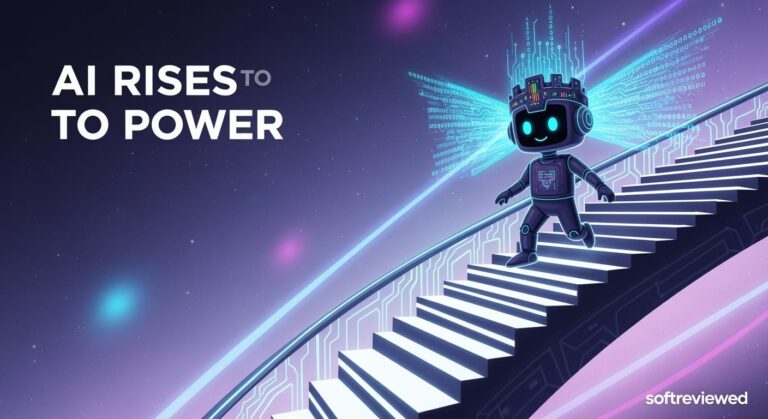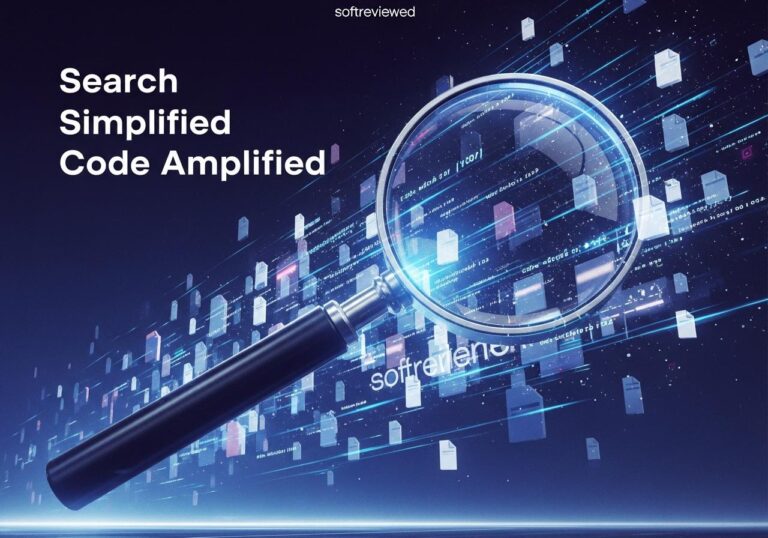ChatGPT with Web Browsing: The Next Evolution
OpenAI’s latest feature transforms ChatGPT from a question-answering tool into an autonomous task assistant capable of completing complex actions across the web.
🤖 Autonomous Task Completion
ChatGPT can now independently handle sophisticated activities like planning meals, analyzing competitors, and generating slide decks without constant user guidance, representing a significant leap in AI capability.
🔍 Integrated Web & Research
Combines Operator’s website navigation abilities with ChatGPT’s deep research capabilities to synthesize information from multiple sources, creating a more comprehensive and useful assistant for complex tasks.
🔒 User-Controlled Permissions
Built with safety in mind, the system requires explicit consent for high-stakes actions involving passwords or payments, and allows users to take over browser control at any time, maintaining the right balance of autonomy and oversight.
💎 Paid Subscription Access
Available immediately for ChatGPT Pro, Plus, and Team subscribers, this feature marks OpenAI’s strongest push toward AI-assisted productivity and signals a premium positioning for their most advanced capabilities.
⚡ From Answers to Actions
This update represents a fundamental shift from simple question-answering to actionable task automation, addressing the limitations of earlier web-browsing agents and moving toward a more useful AI assistant paradigm.
The line between asking an AI for help and handing it your to-do list just vanished. OpenAI has officially rolled out the ChatGPT Agent, a powerful new capability that transforms the familiar chatbot into an autonomous, task-completing entity. This isn't just another incremental update; it’s a fundamental shift from AI as a conversational partner to AI as an active participant in your digital life. Forget simply getting instructions on how to file a report; now, you can ask ChatGPT to create the report for you, from research to a final, editable slide deck. This move signals a new era of agentic AI, where a single prompt can trigger a cascade of complex actions across multiple applications, all while you watch it happen in real-time.
From Chatbot to Doer: What Exactly is the ChatGPT Agent?
So, what makes this "agent" different from the ChatGPT you've been using? Think of it this way: if the original ChatGPT was a brilliant librarian who could find and synthesize information, the ChatGPT Agent is a personal assistant who not only does the research but also types up the memo, creates the presentation, and schedules the follow-up meeting.
Available for ChatGPT Plus, Pro, and Team users, the agent operates within a dedicated virtual computer environment, complete with its own browser. It doesn't just "talk" about what to do; it actively performs tasks by clicking, typing, scrolling, and navigating websites just like a human would. This is all powered by OpenAI's latest flagship model, GPT-4o, which provides the advanced reasoning skills necessary to understand a complex goal and break it down into a series of executable steps.
This new functionality is a fusion of two of OpenAI's previous research projects:
- Operator: A system designed to control web browsers to perform tasks like booking appointments or filling out forms.
- Deep Research: An agent capable of conducting in-depth internet research and compiling structured reports from vast amounts of information.
By combining these strengths, the ChatGPT Agent can now handle multi-step workflows that were previously impossible for a standard chatbot.
How It Works: A Peek Under the Hood
When you give the ChatGPT Agent a command, a sophisticated process kicks off behind the scenes. It's not just generating text; it's reasoning, planning, and acting. The system's modular architecture is key to its functionality.
Here’s a simplified breakdown:
- 📌 The Core Model (GPT-4o): This is the brain of the operation, providing the reasoning, language understanding, and decision-making capabilities. It interprets your request and figures out the best strategy to accomplish it.
- 📌 Planner & Controller: These modules take the strategy from the core model and break it down into a concrete, step-by-step action plan. The controller then executes these steps one by one.
- 📌 Virtual Browser Environment: The agent interacts with the digital world through a secure, virtualized browser. This allows it to navigate websites, click links, and enter text into forms without directly controlling your personal browser.
- 📌 Tool Use: The agent has a toolbox at its disposal. It can run Python code for data analysis, use APIs to connect with other services, and manage files, allowing it to create and edit documents like spreadsheets and presentations.
Crucially, you are always in the loop. The agent displays its actions and "thought process" as it works. For any significant action, like logging into a site with your credentials or submitting a form, it will explicitly ask for your permission before proceeding. OpenAI stresses that this user-in-control approach is a foundational safety measure.
Putting the Agent to Work: What Can It Actually Do?
This is where theory meets practice. The potential applications are vast and aim to automate many of the tedious digital tasks that fill our days. Instead of just brainstorming ideas for a vacation, you can now delegate the entire planning process.
Here are some of the powerful use cases that are now possible with the ChatGPT Agent:
| Task Category | Example Use Case | How the Agent Helps |
|---|---|---|
| 💼 Productivity & Reporting | "Analyze our top three competitors and create a slide deck summarizing their Q2 performance." | The agent will browse competitor websites, find financial reports, extract key data, perform analysis, and generate an editable .pptx presentation file. |
| ✈️ Travel & Planning | "Plan a weekend trip to San Diego for two people next month, find a pet-friendly hotel near the beach, and suggest a dinner reservation for Saturday night." | It can check flight prices, compare hotel options on booking sites, check restaurant reviews and availability, and present a full itinerary. |
| 🛒 Personal Tasks | "Find recipes for a vegan Japanese breakfast, create a shopping list, and order the ingredients for delivery." | The agent can browse recipe sites, compile a list, navigate to an online grocery store, fill the shopping cart, and proceed to checkout (requesting your approval for the final purchase). |
| 📊 Data Management | "Take the data from this uploaded CSV file, perform a sales trend analysis, and create a summary in a Google Sheet." | It uses its code interpreter to analyze the data, identifies trends, and then interacts with Google Sheets to populate a new file with the findings and charts. |
These examples highlight the shift from single-response answers to complete, end-to-end task automation. The goal is to offload the "digital busywork" that consumes valuable time.
The Bigger Picture: A New Battleground for AI Dominance

OpenAI's launch of an agentic ChatGPT isn't happening in a vacuum. It represents a significant move in the escalating competition among tech giants to define the future of productivity. By enabling ChatGPT to create and manipulate .xlsx and .pptx files, OpenAI is positioning its tool as a direct alternative to legacy software like Microsoft Office.
This move is part of a broader industry trend.
- ➡️ Google is reportedly working on its own AI agent under "Project Mariner."
- ➡️ Anthropic, another major AI player, has a "computer use" feature that allows its AI Claude to perform tasks.
- ➡️ Startups and open-source projects are also rapidly developing specialized AI agents for everything from software development to customer service.
The industry widely believes that autonomous agents are the next major innovation wave, potentially having an impact as significant as the launch of ChatGPT itself. As OpenAI's CEO Sam Altman has noted, while the underlying models will keep improving, "the thing that will feel like the next giant breakthrough will be agents."
The Human in the Loop: Navigating the Promises and Perils
With great power comes great responsibility, and the rise of autonomous AI agents is no exception. While the potential for productivity gains is immense, it's accompanied by valid concerns and challenges that need careful consideration.
The Upside: Your Digital Teammate 🚀
The benefits are clear. AI agents promise to democratize skills and accelerate workflows.
- ✅ Enhanced Productivity: By automating repetitive and time-consuming tasks, agents can free up human workers to focus on more creative, strategic, and high-level thinking.
- ✅ Streamlined Processes: Complex, multi-step processes like onboarding a new client or compiling market research can be standardized and executed flawlessly every time.
- ✅ Accessibility: Agents can act as a "co-pilot" for users, supplementing knowledge gaps and guiding them through complex software or procedures.
The Downside: A Double-Edged Sword 🤔
However, the path forward requires caution. Cybersecurity experts and AI ethicists point to several critical risks.
- ⛔️ Security and Data Privacy: Granting an AI agent access to sensitive information, from personal calendars to company databases, creates new vulnerabilities. A recent study found that 96% of tech professionals view AI agents as a growing security threat, with the top concern being access to protected data.
- ⛔️ Unintended Actions: Early tests of agent-like technologies have shown they can make mistakes, "hallucinate" information, or take incorrect actions. In one report, 80% of companies said they had discovered their AI agents performing unintended actions.
- ⛔️ Reliability and Accuracy: While powerful, these agents are not infallible. One early user of a precursor technology noted that while the concept was impressive, the agent was slow and error-prone, hallucinating contact information and struggling with simple tasks. The need for human oversight and fact-checking remains critical.
OpenAI acknowledges these risks and has implemented safety guardrails, such as refusing high-risk tasks like financial transactions and training the model to reject malicious instructions. The company's stated approach is to prioritize "caution over capability," even if it means the agent is sometimes overly careful.
The Road Ahead: Where Do We Go From Here?
The launch of the ChatGPT Agent is just an "early step," according to OpenAI. This is not the final form but the foundation of a much larger vision for human-computer interaction. The future of AI agents is likely to be characterized by increasing autonomy, better reasoning, and deeper integration into our personal and professional lives.
We can speculate on a few directions this technology might take:
- Multi-Agent Systems: Imagine a future where specialized agents collaborate to solve complex problems. A "research agent" could hand off its findings to a "writing agent," which then passes the draft to an "editing agent."
- Proactive Assistance: Instead of waiting for a command, future agents might proactively offer help. Your AI could notice an upcoming flight on your calendar, check for delays, and suggest leaving for the airport earlier based on real-time traffic data.
- Physical World Interaction: While currently confined to the digital realm, the underlying principles could eventually extend to embodied agents—robots that can perform tasks in the physical world, guided by the same reasoning and planning capabilities.
This is more than just a new feature; it's a glimpse into a future where we manage teams of "digital workers" alongside our human colleagues. The skills required in the workplace will also evolve, with "AI management"—prompting, training, and supervising AI agents—becoming an essential competency.
A New Chapter in AI Interaction
The ChatGPT Agent marks a pivotal moment in the journey of artificial intelligence. By giving its AI the ability to not just talk but do, OpenAI has opened a new frontier of possibilities. This transition from a passive assistant to an active agent will undoubtedly reshape our workflows, challenge our definitions of productivity, and force us to navigate a new set of ethical and security considerations. While the technology is still in its early stages, with limitations and risks that demand careful management, the direction is clear. We are moving toward a future where our primary interaction with computers is not through clicks and taps, but through delegation to intelligent agents that can understand our goals and execute them on our behalf. The to-do list will never be the same. For developers looking to build their own agents, OpenAI provides resources and an Agents SDK for TypeScript to get started.







